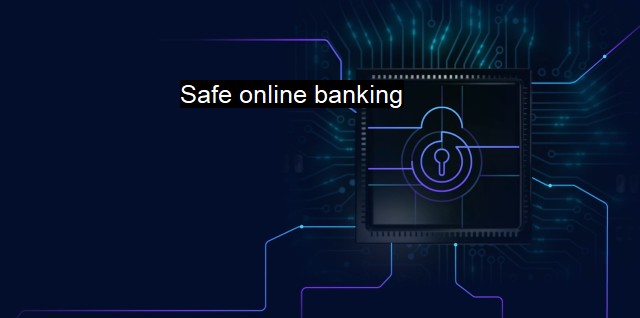What is Safe online banking?
Achieving Safe Online Banking: Understanding the Significance and Security Measures
Safe online banking refers to the measures taken to protect financial transactions conducted over the internet from risks such as misuse of personal data, fraudulent transactions, and hacking. A robust operational environment that ensures the secrecy of users' data and transactions is essential in today's digital world. In the context of cybersecurity and antivirus mechanisms, online banking safety presents unique opportunities and challenges that include evolving data encryption techniques to secure banking transactions.Cybersecurity emphasizes protecting internet-connected systems such as software, hardware, and data from digital threats. It is an integral aspect that intertwines with safe online banking, ensuring that online financial activities take place in a secure environment, devoid of risks. Cybersecurity extends beyond establishing difficult-to-crack passwords to a whole set of systems and protocols designed to outline the resilience of an establishment to cyber threats. It coordinates multiple focusing areas such as parsing network operations to flag suspicious patterns and securing against data damage caused by unauthorized access.
Safe online banking and cybersecurity go hand in hand, helping users conduct online banking transactions securely. Reputable banks have solid cybersecurity protocols to shield against unauthorized activities. These may consist of multiple steps of user verification, advanced encryption for data protection, and dedicated secure servers to carry out transactions. Online banking systems also monitor unusual account activities and trigger alerts in suspicious events, such as multiple transactions occurring simultaneously during unusual hours.
Antivirus mechanisms also play an essential role in driving secure online banking procedures. Modern antiviruses are not just designed to safeguard the computing devices from threats like viruses, malware, and ransomware but are also equipped to recognize scamming techniques such as phishing. These antiviruses can also warn the user of the potential risks associated with confidential data entry on an insecure portal. It's recommended that devices used for online banking should be protected by a reliable and updated antivirus software, helping ward off digital threats that might otherwise compromise a user's personal information or banking details.
Technologies such as Virtual Private Networks (VPN) have also galvanized safe online banking. A VPN offers an additional security layer by offering encrypted internet connections, securing personal data, and concealing the user's activities. Banking transactions conducted via a VPN connection offer the user extra security, ensuring the transition of sensitive data over the internet is safe.
Many banks also provide their apps with added security features, allowing users to access their bank accounts securely from their mobile devices. These apps are designed to detect malware and warn the user. They include alarms for suspicious activities and often require the user to authenticate their identity using biometric data or passcodes.
User awareness and education are also imperative in establishing safe online banking. Cybersecurity and antivirus software in combination can execute their jobs only to a certain extent. Fundamentally, engaging users in safe banking practices can go a long way in ensuring personal data protection. This includes regularly changing passwords, avoiding accessing bank accounts from public devices, and refraining from sharing sensitive information over unverified phone calls or text messages.
Safe online banking involves a network of cybersecurity and antivirus systems. These ensure the secure transition of information between the user and the financial institute. alert users aware of potential online threats contribute significantly to promoting successful online banking safety. The focus is not just on establishing impervious banking systems but also on augmenting the understanding of the users about safe online banking practices.

Safe online banking FAQs
What is online banking security and why is it important?
Online banking security is a set of measures put in place to protect users' financial data and transactions from cybercriminals. It is important because online banking transactions involve sensitive information such as account numbers, passwords, and personal identification information which can be compromised if not protected properly.What can users do to protect their accounts and transactions during online banking?
To protect your accounts and transactions during online banking, you should use strong and unique passwords, avoid using public Wi-Fi, keep your software and antivirus updated, and avoid clicking on suspicious links or downloading unknown software.Is antivirus protection necessary for safe online banking?
Yes, antivirus protection is necessary for safe online banking. Antivirus software can detect and remove malicious software that can steal your login credentials, personal information, and other sensitive data.How can users identify phishing attacks when banking online?
Users can identify phishing attacks when banking online by looking for signs such as suspicious URLs, typos and grammatical errors, and unsolicited requests for personal information. To avoid falling victim to phishing attacks, you should never click on links or download attachments from unknown sources, and verify the authenticity of any request for personal information before providing it.| | A | | | B | | | C | | | D | | | E | | | F | | | G | | | H | | | I | | | J | | | K | | | L | | | M | |
| | N | | | O | | | P | | | Q | | | R | | | S | | | T | | | U | | | V | | | W | | | X | | | Y | | | Z | |
| | 1 | | | 2 | | | 3 | | | 4 | | | 7 | | | 8 | | |||||||